It takes much more than turning up on time and playing the right notes to be a reliable stand partner, says violinist Alexandra Gorski. There are many essential rules to be followed
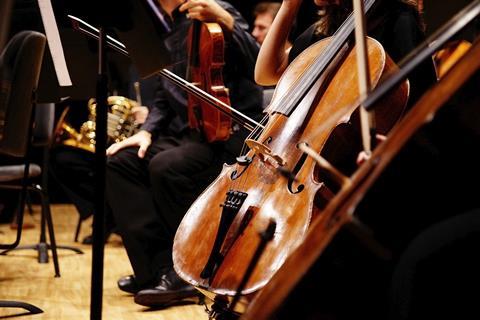
Discover more Featured Stories like this in The Strad Playing Hub
Read more premium content for subscribers here
Orchestral musicians are entrusted with countless responsibilities: individual mastery of their instruments, meticulous practice of repertoire and adjusting their own playing for each programme, all the while juggling the demands of working in an ever-changing environment with a wide range of people and personalities.
Among the most important of those responsibilities is learning what qualities make a good stand partner. The relationship between musicians sharing a stand is one of the most important aspects of successful orchestral playing, and is integral to the success of a performance and wellbeing of the group as a whole.
A good stand partner goes beyond someone who reads the same music or simply plays the right notes; they are a collaborator and a support system, embodying qualities that enrich the experience of both their stand and the ensemble as a whole.
One of the most fundamental characteristics of a good stand partner is preparation and reliability. Preparation goes beyond the basic requirement of knowing the music on the stand. Sharing a stand with a musician who is well practised, confident, consistent and enthusiastic about the repertoire to be played makes for an infinitely more fulfilling rehearsal and effortless performance experience. Aside from that, a reliable stand partner is one who arrives to rehearsal on time (note: on time means early!), and with all the required accessories such as a mute, pencil, the score (if taken home from a previous rehearsal), extra strings and any other necessities.
Excellent communication skills, both within the stand and with other members of the section, are essential to those striving to be exceptional stand partners. Clear, respectful and effective communication during a rehearsal is imperative, especially when playing together in such close quarters and with limited rehearsal time to achieve results. Whether it’s discussing fingerings or other orchestral markings, directions interpreted from the front desks or conductor, or even providing cues during a performance, communication between musicians sharing a stand must be open and respectful. Additionally, a good stand partner is one who is an attentive listener, able to pass back information given from the front desks quietly and quickly.
There are unwritten rules that make up orchestral etiquette
There are certain unwritten and universal rules that make up orchestral etiquette, which is perhaps the most important standard an orchestral musician can observe. Among the most basic of those rules is respect for the conductor and leaders: when rehearsing, musicians must be reactive to all given directions, quickly stop playing when the conductor stops conducting, and limit any communication or playing when the conductor or concertmaster is speaking. The last of these is especially disruptive and distracting behaviour.
A good stand partner is also one who is understanding, supportive and non-judgmental. Mistakes can happen, and are common in rehearsal, and playing with a musician who is calm and non-reactive about accidents is always a welcome pleasure.
Finally, one of the best-known rules of orchestral etiquette: no warming up with solo repertoire!
Exploring the qualities that define an exceptional stand partner allows orchestral musicians a deeper understanding of ensemble dynamics, encouraging stronger interpersonal connections within their group. Adhering to these principles, musicians can contribute to a respectful, professional and enjoyable musical experience for everyone involved, and ultimately, elevate the quality and experience of their own playing.
Read: Opinion: The benefits and challenges of playing at the back of the section
Read: Opinion: Flexibility in orchestral playing
Discover more Featured Stories like this in The Strad Playing Hub
Read more premium content for subscribers here
The number one source for playing and teaching books, guides, CDs, calendars and back issues of the magazine.
In The Best of Technique you’ll discover the top playing tips of the world’s leading string players and teachers. It’s packed full of exercises for students, plus examples from the standard repertoire to show you how to integrate the technique into your playing.
The Strad’s Masterclass series brings together the finest string players with some of the greatest string works ever written. Always one of our most popular sections, Masterclass has been an invaluable aid to aspiring soloists, chamber musicians and string teachers since the 1990s.
American collector David L. Fulton amassed one of the 20th century’s finest collections of stringed instruments. This year’s calendar pays tribute to some of these priceless treasures, including Yehudi Menuhin’s celebrated ‘Lord Wilton’ Guarneri, the Carlo Bergonzi once played by Fritz Kreisler, and four instruments by Antonio Stradivari.





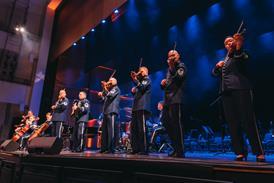
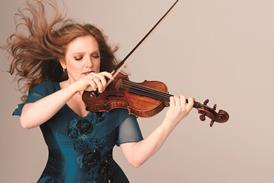


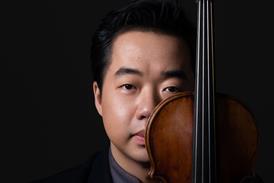
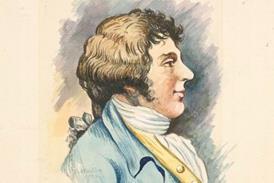
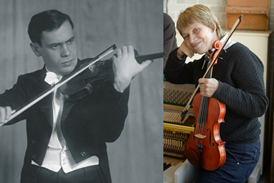
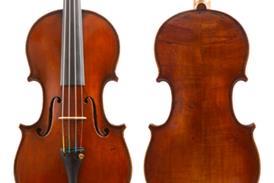
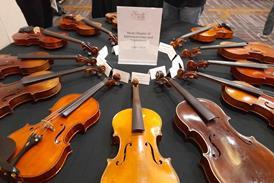

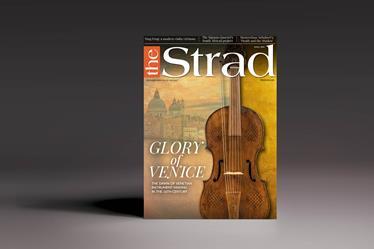






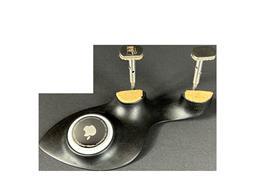















No comments yet